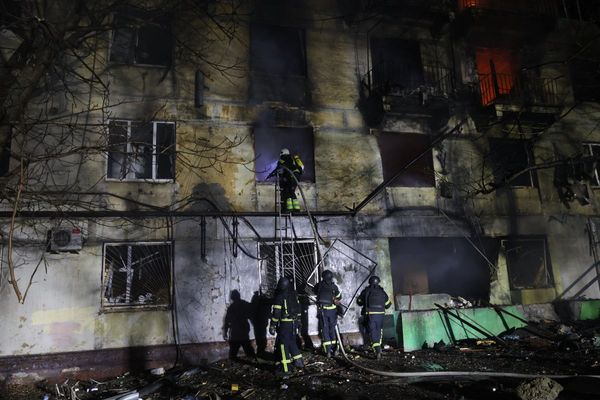
The Reserve Bank of Australia could be forced to hike interest rates as early as May, economists say, after inflation climbed to 3.8% in the year to October, from 3.6% in the month before.
The latest bad news on cost of living was accompanied by a shocking 37% annual jump in power bills as generous state government subsidies rolled off, figures from the Australian Bureau of Statistics revealed.
As the Coalition again used parliamentary question time to attack the government for its record on electricity prices, Jim Chalmers flagged he could announce further energy bill relief for households in the upcoming midyear budget.
“We’ll take a decision about electricity rebates in the context of finalising that midyear budget update,” the treasurer said. The update is due around 17 December.
Sign up: AU Breaking News email
Inflation was now at its highest since mid-2024, and had performed a major U-turn after it dropped as low as 1.9% in June – when energy bill rebates flattered the underlying inflation picture.
Childcare costs climbed 11% through the year, as providers passed on higher wage and operating costs, the ABS said, while medical and hospital services were up 5.1%.
Soaring gold and silver prices left the price of accessories 12% up on a year earlier.
David Gruen, the head of the ABS, told Guardian Australia that the year-on-year increase in power costs had peaked in October, which suggested inflation could ease through the rest of this year and into the next.
“In year-ended terms, this is the biggest increase” in the monthly electricity index, he said.
Still, analysts said the ABS’s first complete monthly consumer price index confirmed a sharp upswing in broader price pressures that devastated hopes for more RBA interest rate cuts.
Underlying inflation, which removes the impact of large, temporary price swings – like in electricity prices – lifted from 3.2% in September to 3.3% in the year to October.
Barrenjoey’s chief economist, Jo Masters, said “we are seeing more inflation persistence than we had expected”, and predicted the next move from the Reserve Bank would be to hike rates at its May board meeting – and then again in August.
In particular, “housing inflation is simply running too fast to be consistent with inflation at target,” Masters told clients, pointing to re-accelerating rents (up 4.2% annually) and construction costs.
While “clearly the bar to rate hikes is very high”, Masters said “there is the potential that the (RBA) board acts as soon as February”.
Economists at UBS agreed that inflation was likely to remain above 3% over the coming year, and that the RBA would need to respond with a rate hike in late 2026, with another in early 2027.
With cost of living still the number one issue facing voters, Chalmers left the door open for household energy bill rebates to be extended beyond the end of this year, saying the government would come to a decision in “the next few weeks”.
“We’ve been very clear and very upfront for some time now – this electricity bill relief is really important. It is taking some of the edge off power prices for families and pensioners and people in our communities right around Australia.”
The March budget extended the commonwealth’s energy bill relief fund for six months, which gave another $150 to all households and about 1 million small businesses, split into two quarterly instalments.
The opposition leader, Sussan Ley, repeatedly dodged questions in a Wednesday morning interview over whether the Coalition supported extending the power bill subsidies.







